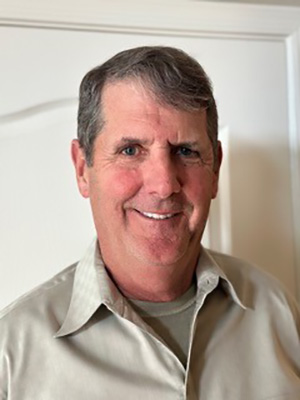Let’s Stop Idolizing Ourselves
Self-confidence comes from meeting new challenges.
I shake my head when I see the large amount of self-idolizing today on LinkedIn. Who describes themselves as visionary, disruptive, a rainmaker, the prophet, the catalyst, the wizard, a guru, a Jedi master, or a creative genius?
Do you feel that this hubris is believable to peers? When did our egos start to dilute the need for getting up every day, working hard, looking at problems from multiple angles, being bold to take mindful chances, understanding we make our own luck and being thankful for small victories when running a business? Your title is stated on your business card; use it.
Disruptive people, technologies or real advancements in our society are so few, it seems we now must minimize these people or events when they actually occur due to the overuse of this term. For most of us, success is a byproduct of very hard work, learning from failures, collaboration with the people we are surrounded by, an ability to see the real issues affecting our businesses with a focus on solving the critical few, a strong competitive drive for “winning,” and yes, a little good luck.
Winning deals or awards is both an exhilarating and a humbling experience, but not something to dwell long on as the next challenge is always right around the corner. Outstanding business results simply gave us the right to wake up and fight a new fight the next day; it’s our job and people are counting on us to perform. Those people counting on us are our families, customers, shareholders, stakeholders and vendor base.
I feel that a degree of “working scared” has driven excellent results for the successful EMS professionals I know. Selling scared wasn’t a fear of being successful or entering a challenging opportunity; it was the fear of “losing” and not doing your best to outplan and outperform the competition. It’s a fear to deliver less than the desired outcome you have been tasked to do. It was a fear of not meeting a deadline that people were counting on or the fear of taking too long to respond to someone who reached out to you earlier in your busy day.
The defining competitive spirit to enter a contested deal, maybe with the weaker team solution but driven to outsell the competition, has resulted in many wins in our work history. Writing the best technical response to an RFI, taking time to really understand the needs of a prospect and offering solutions, getting to your factory before an audit to run a mini-audit yourself, preparing the factory on roles and responsibilities for every audit, managing the arduous task of getting a quote just right, producing marcom content that can be used at the right time from a sales tool kit that defines who you are and who you aren’t … these are the moves that separate the EMS sales professional from the sales hobbyist.
The difference between self-confidence and self-idolization is big. To me, self-confidence is earned over time after numerous failures where you learn lessons that stay with you forever. At some point in our lives, we should realize we now know what we know, and work to fill gaps of what we don’t.
Self-idolization, on the other hand, can be hatched overnight with a post, a self-described title or the simple claim you have arrived and the world should take notice.
With a good sense of who you are and over time, the wins are a little less celebratory and the losses don’t drive you into a depression. You simply look forward to the next opportunity to compete and try to outperform your competition.
Once you have achieved years of successes, the world you want to compete in will take notice and will want you on their team. Empty or exaggerated claims of superiority support no purpose other than stroking an overinflated ego. Those who start to believe a self-idolizing status tend to lose whatever edge they once had and spill into mediocrity.
Still inclined to describe yourself in these terms? Perhaps you should adopt the funniest title I’ve seen: “President of Awesomeness.”
Jake Kulp is founder of JHK Technical Solutions, where he assists OEMs and EMS companies with optimizing demand creation offerings and deciding when and where to outsource manufacturing. He previously spent nearly 40 years in executive roles in sales and business development at MC Assembly, Suntron, FlexTek, EMS, and AMP Inc. He can be reached at jkulp@cox.net.


